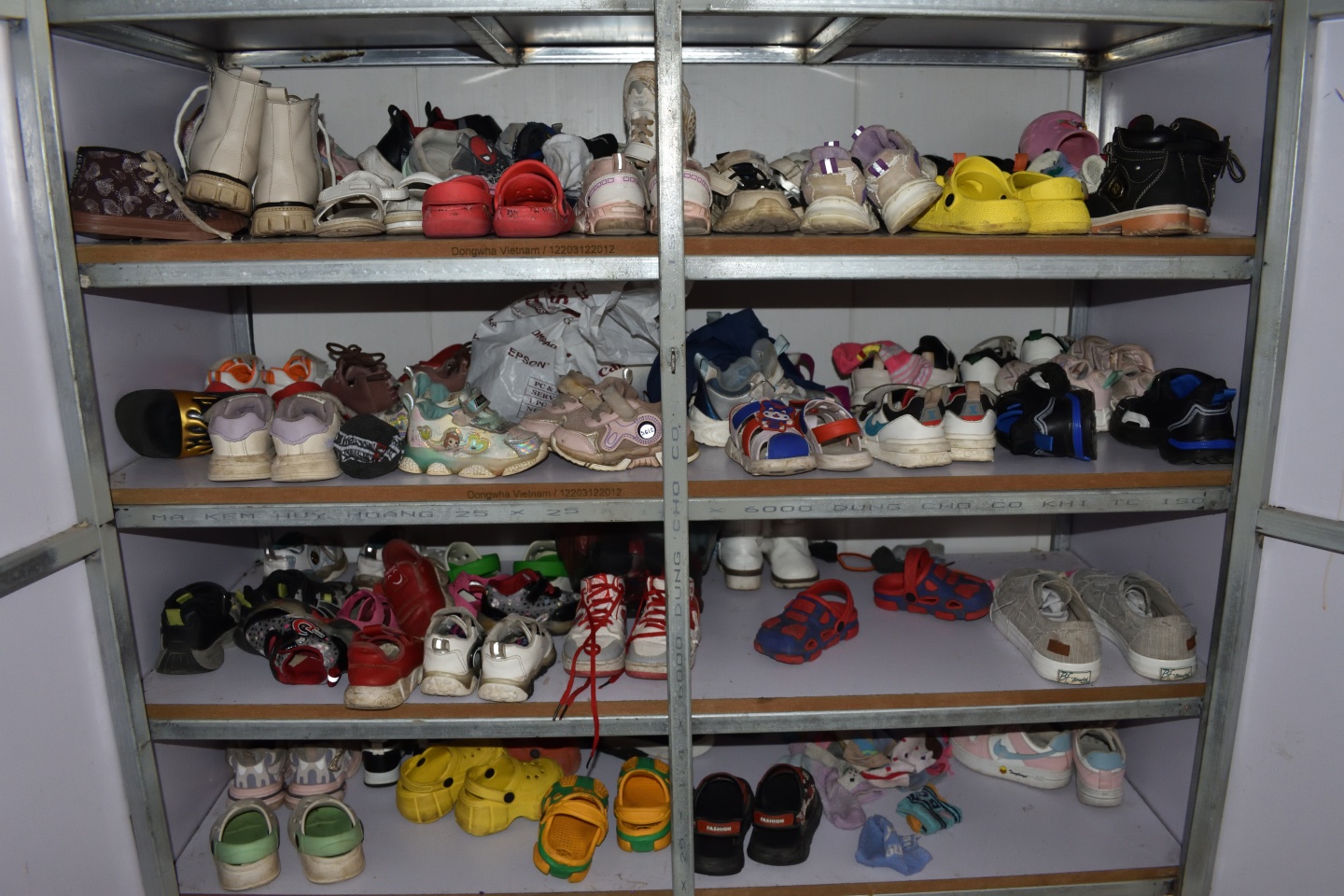30 October, 2024One of Ethiopia’s industrial parks, Bole Lemi, in Addis Ababa, has set up workplace child daycare facilities to cater for young mothers working in the park.
There are over 25 000 workers employed at Bole Lemi mainly in the textile and garment industries of whom 85 per cent are women. The two daycare facilities that IndustriALL Global Union visited on 28 October cater for up to 100 infants starting from one-year old and will accommodate toddlers of up to four years old in the future.
According to the Ethopian Industrial Park Development Corporation (IPDC,) factory owners found out that most workers did not return to work after maternity leave as they had no one to look after their babies if they resumed work. To address the workers plight, the IPDC, in consultation with trade unions, set up a daycare centre as a model that factories could replicate in their factory premises in the industrial park.
The daycare centre has child-friendly facilities for playing, sleeping, and bathing, and mothers leave their children in the morning when they start work, and pick them up at the end of their shifts in the afternoon. The centres also provides nutritional education to mothers as well as early childhood education.
The first of the 14 factories to heed the call to set up a daycare centre is garment manufacture, Shints, which employs about 6,500 workers. About 2,000 workers including the mothers of the children at the Shints daycare centre live off the park. While 4,500 workers are housed in dormitories. Shints said it provided meals to the residential workers whilst those who lived outside were given transport allowances. However, the dormitories have no facilities for children or families.
The Industrial Federation of Textile Leather and Garment Workers Trade Union (IFTLGWTU), affiliated to IndustriALL, says the wages of 4,700 Ethiopian Birr (ETB) or US$39 paid to the workers in the park are not enough for mothers to hire caregivers for their children when they go work. Neither are the wages enough to pay for other expenses that include accommodation and food. Currently, Ethiopia has no minimum wages and experts estimate that a living wage for Addis Ababa is at least ETB 36,422 or US$300.
“Most young mothers were resigning from work to look after their infants and we realized that daycare centres, where the women can leave their children and go to work, would help workers,”
said Engidu Tsegaye, investor support and follow up service head at Bole Lemi Industrial Park.
“Our basic union’s executive members are participating in the running of the daycare centres, and this is an initiative that is supported by our federation because it benefits workers,”
added Angesom Gebreyohannes, IFTLGWTU president.
Paule France Ndessomin, IndustriALL regional secretary for Sub-Saharan Africa said:
“Introduction of daycare centres at Bole Lemi is a crucial step to promoting women’s labour force participation in the textile and garment sector in Ethiopia.”
Industrial parks are special economic zones or industrial clusters owned by state-owned enterprise, the Ethiopian IPDC. The industrial parks were established to promote government policies on export growth, employment creation, technology transfer, and economic development through private sector investment in manufacturing industries.





